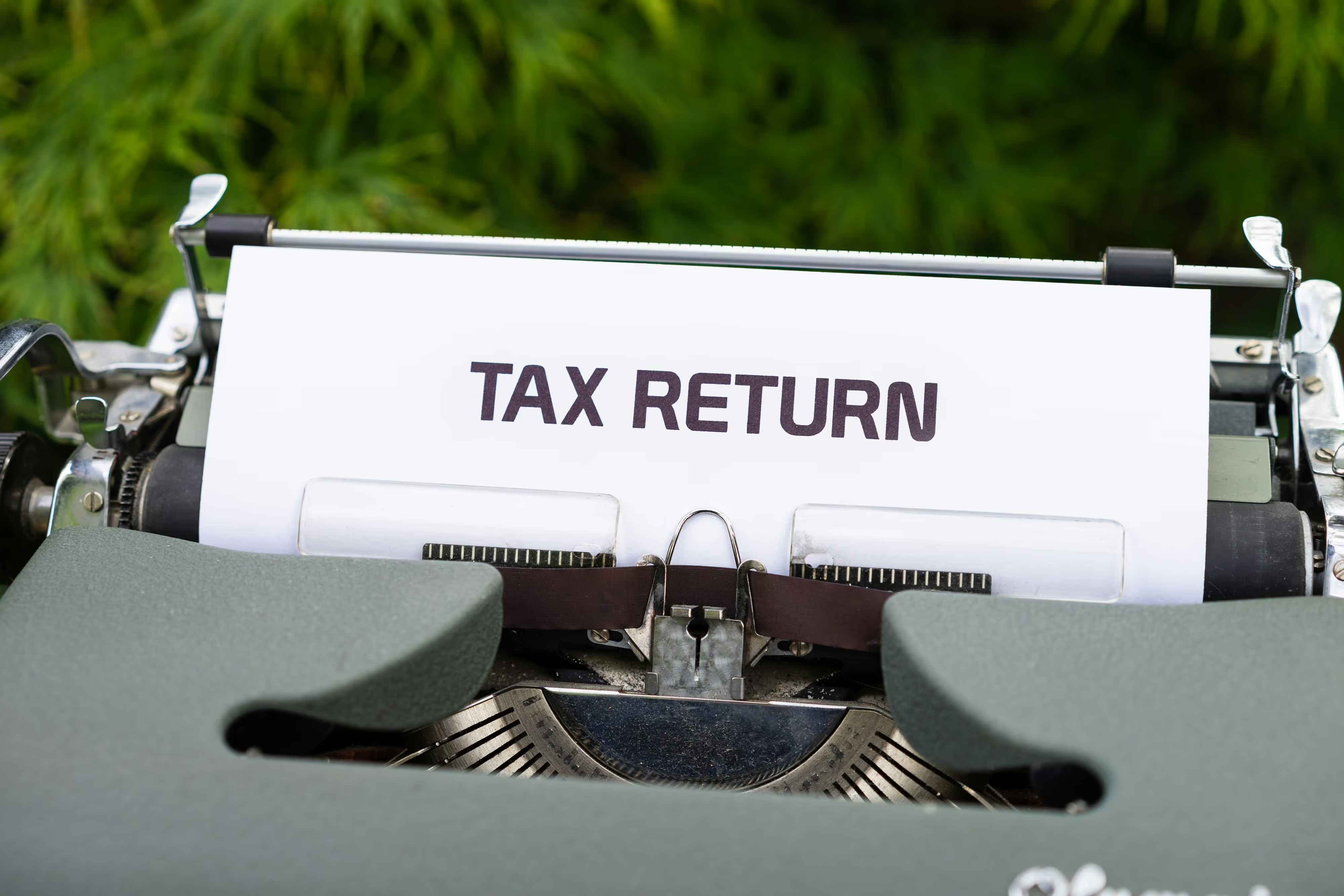
Kudos has partnered with CardRatings and Red Ventures for our coverage of credit card products. Kudos, CardRatings, and Red Ventures may receive a commission from card issuers. Kudos may receive commission from card issuers. Some of the card offers that appear on Kudos are from advertisers and may impact how and where card products appear on the site. Kudos tries to include as many card companies and offers as we are aware of, including offers from issuers that don't pay us, but we may not cover all card companies or all available card offers. You don't have to use our links, but we're grateful when you do!
Does Your Tax Return Affect Your Credit Score?
July 1, 2025


Quick Answers
Filing your tax return has no direct impact on your credit score, as the IRS does not report your income or payment status to the three major credit bureaus.
However, failing to pay your taxes can lead to a federal tax lien, which lenders can discover through public record searches, potentially affecting your ability to get a loan.
Lenders will use the income documented on your tax return to verify your debt-to-income ratio, a key factor in their lending decisions, separate from your credit score.
What is a tax return?
A tax return is a set of documents you file with a tax authority like the Internal Revenue Service (IRS). These forms report your annual income, expenses, and other relevant financial information. Based on this data, your return calculates your tax liability, schedules payments, or requests a refund for any overpaid taxes.
While your tax return itself does not directly influence your credit score, it plays a crucial role in your overall financial health. Lenders often require copies of your tax returns to verify your income when you apply for a mortgage or other significant loans. Therefore, a consistent and accurate filing history can support your applications for new credit by substantiating your ability to repay debt.
How Your Tax Return Could Impact Your Credit Score
While filing your tax return doesn't directly influence your credit score, the financial aftermath can. Unpaid tax debt can trigger a series of events that may ultimately harm your creditworthiness.
- Incurring Tax Debt: The process begins when you file your return and have a tax bill you cannot pay immediately. This initial debt is between you and the IRS, not the credit bureaus.
- Ignoring Payment Obligations: If you neglect to pay the owed taxes, the IRS will issue notices demanding payment. Failure to respond or arrange a payment plan escalates the situation significantly.
- Issuance of a Federal Tax Lien: After exhausting other collection methods, the IRS can file a Notice of Federal Tax Lien. This is a public legal claim against your assets for the amount you owe.
- Lender Discovery: Although tax liens no longer appear on standard credit reports, they are public records. Lenders, particularly for mortgages, often perform public record searches and can discover the lien.
- Negative Lending Decisions: The discovery of an active tax lien signals high financial risk to lenders, often leading to the denial of new credit applications for loans or mortgages.
How Much Will Your Tax Return Affect Your Credit Score?
While your tax return itself doesn't directly influence your credit score, how you handle your tax situation can have indirect consequences. Here are a few key factors to consider.
- Direct vs. Indirect Impact: The IRS does not report your tax return information to credit bureaus. Therefore, filing your taxes or receiving a refund has no direct effect on your credit score.
- Using Your Refund Wisely: Using your refund to pay down credit card balances can lower your credit utilization ratio. This can have a positive impact on your overall credit health and score.
- Unpaid Tax Debt: Unpaid tax bills can result in a federal tax lien. While liens are not on credit reports, lenders can find them in public records, potentially impacting future credit applications.
How You Can Avoid Your Tax Return Affecting Your Credit Score
Pay Your Taxes on Time
The most direct method to protect your credit is to file and pay your taxes by the deadline. Timely payment prevents the IRS from initiating collection actions that could lead to a federal tax lien, thereby keeping your credit report completely unaffected by your tax obligations.
Arrange a Payment Plan
If you cannot pay your tax bill in full, proactively contact the IRS to set up an installment agreement. This formal arrangement demonstrates responsibility and can stop the government from filing a Notice of Federal Tax Lien, which is the primary action that harms your credit.
Dispute Inaccuracies
Should a tax lien be filed in error or contain incorrect information, you have the right to dispute it. Promptly addressing any mistakes with the IRS can result in the lien’s withdrawal, removing the negative mark from your credit history and helping to restore your score.
Choose the Right Card to Your Tax Return
Your credit score is a dynamic number, not a permanent grade, meaning you can always improve it through consistent, positive financial habits. An expert guide outlines several actionable methods, with most people seeing meaningful changes within just a few months.
- Monitor your credit reports. Regularly check your reports from all three major bureaus—Experian, TransUnion, and Equifax—to identify and dispute any inaccuracies that could be hurting your score.
- Set up automatic bill payments. Your payment history is the most significant factor in your score, so ensuring every bill is paid on time is a critical first step.
- Lower your credit utilization ratio. Aim to use less than 30% of your available credit, as high balances can signal financial distress to lenders.
- Become an authorized user. You can get added to the credit card account of someone with a strong payment history, which can help build your own credit file.
- Diversify your credit mix. Lenders like to see that you can responsibly manage different types of credit, such as revolving credit from cards and installment loans like auto or personal loans.
- Limit hard inquiries. Avoid applying for too much new credit at once, and use prequalification tools when possible to shop for rates without impacting your score.
The Bottom Line
Filing your tax return and receiving a refund won't directly impact your credit score. However, unpaid tax debt can lead to a federal tax lien, which may negatively affect your credit.
Frequently Asked Questions
Does filing a tax extension affect my credit score?
No, filing a tax extension won't directly impact your credit score. The IRS does not report extensions to credit bureaus, so it won't appear on your credit report.
Can owing back taxes hurt my credit score?
Owing back taxes doesn't directly lower your credit score. However, an unpaid federal tax lien can appear on public records, potentially affecting your ability to secure new loans.
Does getting a tax refund improve my credit score?
Receiving a tax refund doesn't directly boost your credit score. However, using that money to pay down existing debts can lower your credit utilization and positively influence your score.
Unlock your extra benefits when you become a Kudos member

Turn your online shopping into even more rewards

Join over 400,000 members simplifying their finances

Editorial Disclosure: Opinions expressed here are those of Kudos alone, not those of any bank, credit card issuer, hotel, airline, or other entity. This content has not been reviewed, approved or otherwise endorsed by any of the entities included within the post.



































.webp)







